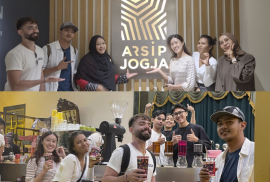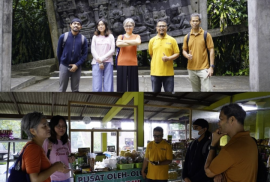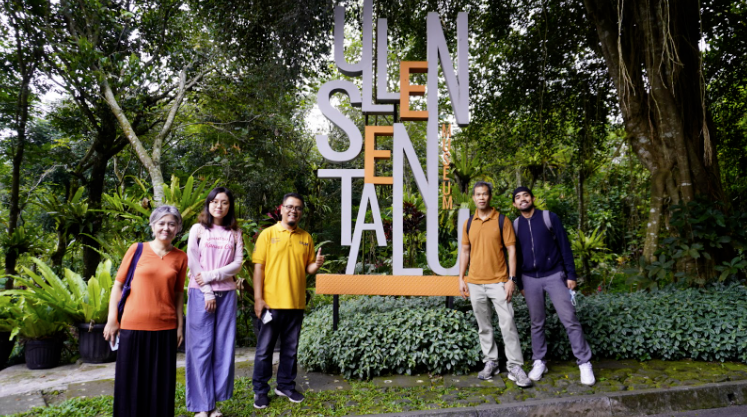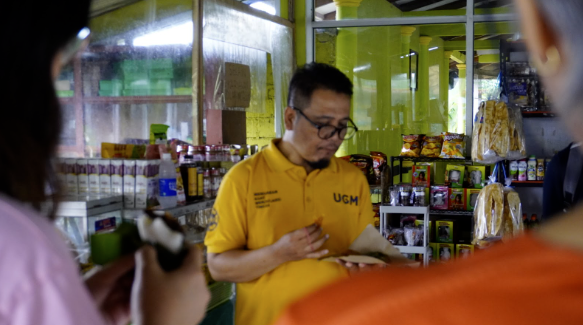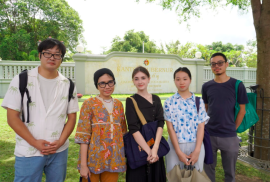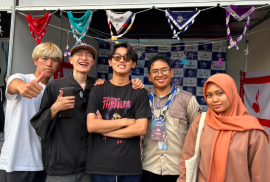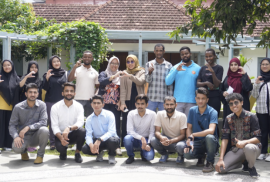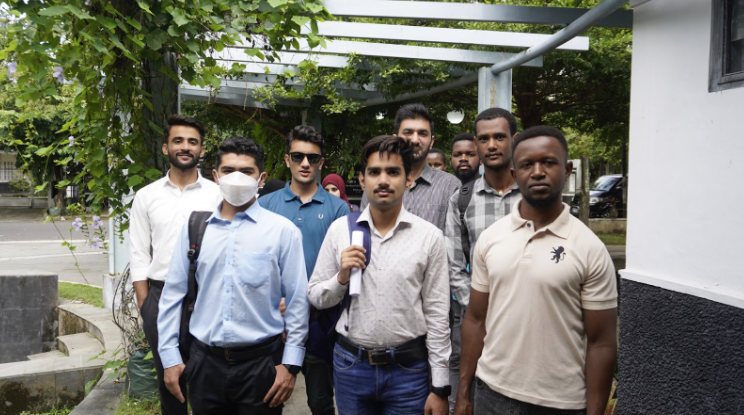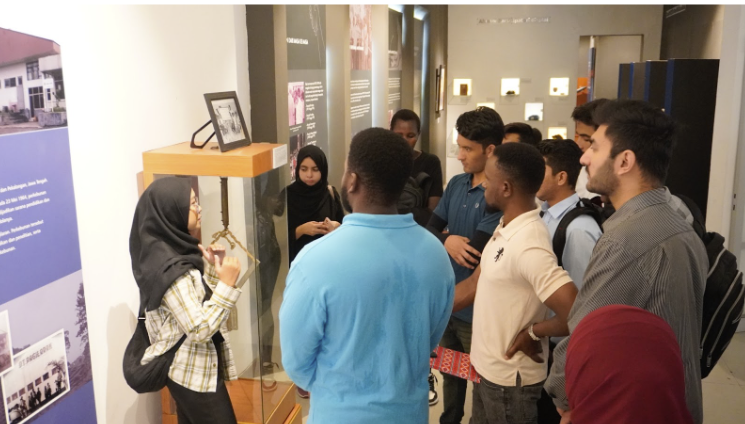Yogyakarta, 30/04/2025 – As part of a comprehensive intercultural learning experience, students of the Kemitraan Negara Berkembang (KNB) program in advanced class 2 from the Indonesian Language and Culture Learning Service (INCULS) of Universitas Gadjah Mada participated in educational visits to two special locations in Yogyakarta: Diorama Arsip Jogja and Space Roastery 1890. This activity was designed not only to enrich students’ understanding of local history and culture, but also to instill important values related to heritage preservation, social responsibility, and community-based creative entrepreneurship.
The journey began at Diorama Arsip Jogja, a visual documentation space located in the complex of the Yogyakarta Regional Library and Archives Agency. More than just a document repository, the Diorama is a visual-based interactive space that displays the key phases of Yogyakarta’s history chronologically from the heyday of Islamic Mataram, the Dutch colonial era, the struggle for independence, to the development of the city in the present. With an array of informative panels, artifact replicas, and well-curated narratives, students are invited to immersively trace the city’s history. For those who come from different countries with different cultural backgrounds, this space opens new insights into the importance of archives and collective memory in the formation of a nation’s identity. Diorama Arsip Jogja does not only present history as something static, but as a living heritage that continues to shape society today.
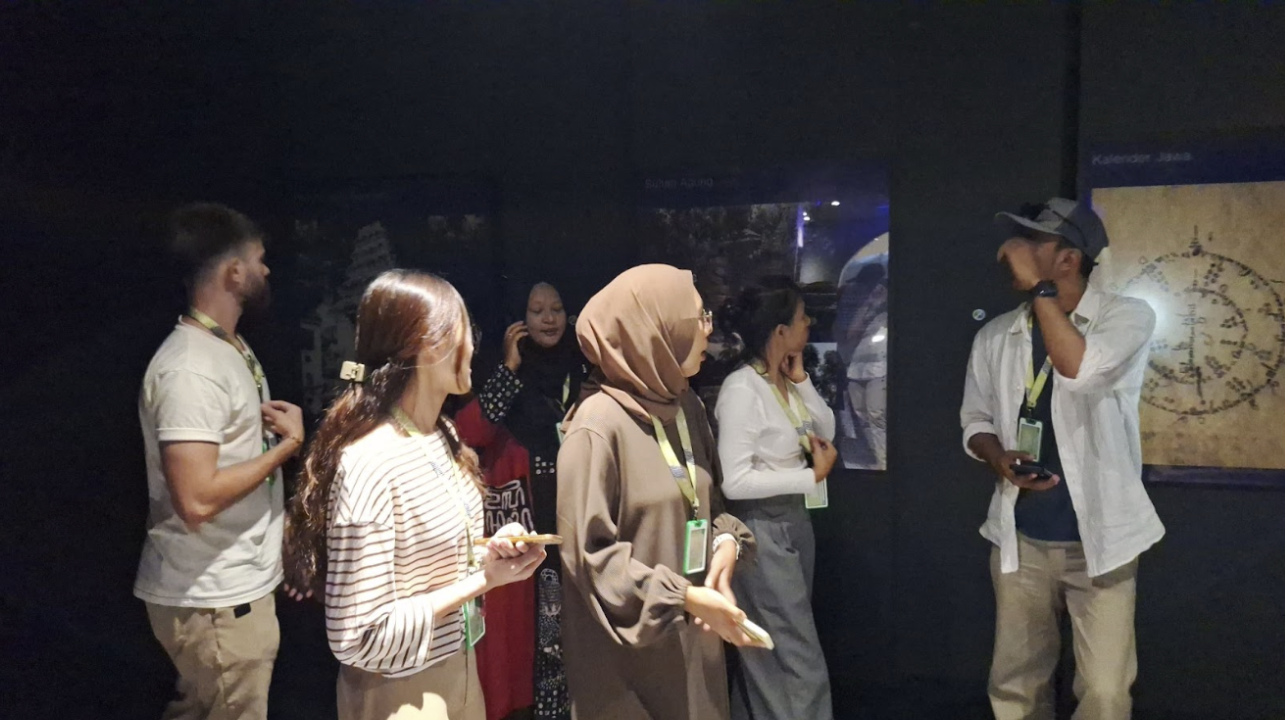
After exploring the history room, the group continued their journey to Space Roastery 1890, a coffee shop that occupies a heritage building, a former doctor’s house from the colonial era. Here, the old architectural heritage blends harmoniously with contemporary lifestyles. The interior of the building still retains high ceilings, wide windows, and old wooden elements that create a warm and characterful atmosphere. Students enjoy relaxing while sipping quality local coffee, chatting, and enjoying the historical atmosphere that this place has to offer. But this visit was not just a moment of respite; they were also introduced to the coffee roasting process first-hand and the story behind the transformation of this old building into a vibrant and sustainable creative enterprise space. This story shows that preserving architectural heritage does not have to mean freezing the past, but can be the foundation for innovation and local economic growth that is contextual to the times.
Both the archive and the coffee shop represent a connection across time, between a past that needs to be preserved and a future that must be faced with responsibility and creativity. The visit not only enriched the students’ understanding of Indonesian history and culture, but also raised their awareness of the importance of active participation in the preservation of local values, while encouraging the creation of inclusive spaces that accommodate cross-cultural interactions. Through this experience, the students not only learned the Indonesian language, but also absorbed the values that live in the local narrative, becoming a subtle yet impactful form of cultural diplomacy, rooted in a concern for the history and lives of the people of Yogyakarta.
[INCULS, Thareeq Arkan Falakh]

